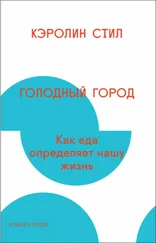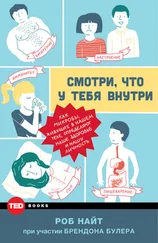Bowden, R. (1979). "Tapu and Mana: Ritual Authority and Political Power in Traditional Maori Society." Journal of Pacific History , 14, 50–61. doi: DOI:10.1080 / 00223347908572364
Bowen, J. R. (2006). Why the French Don't Like Headscarves: Islam, the State, and Public Space . Princeton, NJ: Princeton University Press.
Bowen, J. R. (2007). Why the French Don't Like Headscarves: Islam, the State, and Public Space . Princeton, NJ: Princeton University Press.
Bowen, J. R. (2010). Can Islam Be French? Pluralism and Pragmatism in a Secularist State . Princeton, NJ: Princeton University Press.
Bowen, J. R. (2012). Blaming Islam. Cambridge, Mass.: MIT Press.
Boyd, R., Gintis, H., Bowles, S., and Richerson, P. (2003). "The Evolution of Altruistic Punishment." Proceedings of the National Academy оf Sciences of the USA , 100 (6), 3531–35.
Boyd, R., and Richerson, P. J. (1985). Culture and the Evolutionary Process . Chicago: University of Chicago Press.
Boyd, R., and Richerson, P. J. (1990). "Culture and Cooperation." In J. J. Mansbridge et al. (eds.), Beyond Self-Interest , pp. 111–32. Chicago: University of Chicago Press.
Boyd, R., and Richerson, P. J. (1992). "Punishment Allows the Evolution of Cooperation (or Anything Else) in Sizable Groups." Ethology and Sociobiology , 13 (171−95).
Boyd, R., and Richerson, P. J. (2002). "Group Beneficial Norms Can Spread Rapidly in a Structured Population." Journal of Theoretical Biology , 215 (3), 287–96.
Boyd, R., and Richerson, P. J. (2005). The Origin and Evolution of Cultures . Oxford: Oxford University Press.
Boyd, R., and Richerson, P. J. (2006). "Solving the Puzzle of Human Cooperation." In S. C. Levinson and P. Jaisson (eds.), Evolution and Culture, pp. 105–32. Cambridge, Mass.: MIT Press.
Boyer, P. (1990). Tradition as Truth and Communication: A Cognitive Description of Traditional Discourse. Cambridge: Cambridge University Press.
Boyer, P. (1994). "Cognitive Constraints on Cultural Representations: Natural Ontologies and Religious Ideas." In L. A. Hirschfeld and S. Gelman (eds.), Mapping the Mind: Domain-specificity in Culture and Cognition , pp. 391–411. New York: Cambridge University Press.
Boyer, P. (2000a). "Functional Origins of Religious Concepts: Conceptual and Strategic Selection in Evolved Minds." [Malinowski Lecture 1999.] Journal of the Royal Anthropological Institute , 6, 195–214.
Boyer, P. (2000b). "Natural Epistemology or Evolved Metaphysics? Developmental Evidence for Early-Developed, Intuitive, Category-Specific, Incomplete, and Stubborn Metaphysical Presumptions." Philosophical Psychology , 13 (3), 277–97.
Boyer, P. (2001). Religion Explained: Evolutionary Origins of Religious Thought. New York: Basic Books. (Буайе П. Объясняя религию. Природа религиозного мышления. – М.: Альпина Диджитал, 2001.)
Boyer, P. (2008). "Evolutionary Economics of Mental Time Travel?" Trends in Cognitive Sciences, 12 (6), 219–24.
Boyer, P. (2015). "How Natural Selection Shapes Conceptual Structure: Human Intuitions and Concepts of Ownership." In E. Margolis and S. Laurence (eds.), The Conceptual Mind: New Directions in the Study of Concepts , pp. 185–200. Cambridge, Mass.: MIT Press.
Boyer, P., and Barrett, H. C. (2005). "Domain Specificity and Intuitive Ontology." In D. M. Buss (ed.), The Handbook of Evolutionary Psychology , pp. 96–118. Hoboken, N. J.: John Wiley and Sons.
Boyer, P., and Barrett, H. C. (2015). "Domain Specificity and Intuitive Ontologies." In D. M. Buss (ed.), The Handbook of Evolutionary Psychology (2nd ed.), pp. 161–180. Hoboken, N. J.: John Wiley and Sons.
Boyer, P., and Bergstrom, B. (2011). "Threat-Detection in Child Development: An Evolutionary Perspective." Neuroscience and Biobehavioral Reviews , 35 (4), 1034–41.
Boyer, P., Firat, R., and Van Leeuwen, F. (2015). "Safety, Threat, and Stress in Intergroup Relations: A Coalitional Index Model." Perspectives on Psychological Science , 10 (4), 434–450.
Boyer, P., and Lienard, P. (2006). "Why Ritualized Behavior? Precaution Systems and Action Parsing in Developmental, Pathological and Cultural rituals." Behavioral and Brain Sciences , 29 (6), 595–613.
Boyer, P., and Parren, N. (2015). "Threat-Related Information Suggests Competence: A Possible Factor in the Spread of Rumors." PLoS One , 10 (6), e0128421. doi: 10.1371 / journal.pone.0128421
Boyer, P., and Petersen, M. B. (2012). "The Naturalness of (Many) Social Institutions: Evolved Cognition as Their Foundation." Journal of Institutional Economics , 8 (1), 1–25. doi: 10.1017 / S1744137411000300
Boyer, P., and Ramble, C. (2001). "Cognitive Templates for Religious Concepts: Cross-Cultural Evidence for Recall of Counter-Intuitive Representations." Cognitive Science , 25, 535–64.
Boyer, P. S., and Nissenbaum, S. (1974). Salem Possessed: The Social Origins of Witchcraft . Cambridge, Mass.: Harvard University Press.
Bradbury, J. W., and Vehrencamp, S. L. (2000). "Economic Models of Animal Communication." Animal Behaviour , 59 (2), 259–68.
Brown, D. E. (1991). Human Universals . New York: McGraw Hill.
Brubaker, R. (2004). Ethnicity without Groups . Cambridge, Mass.: Harvard University Press.
Brubaker, R., Loveman, M., and Stamatov, P. (2004). "Ethnicity as Cognition." Theory and Society , 33 (1), 34.
Bruce, G. (2010). The Firm: The Inside Story of the Stasi . Oxford: Oxford University Press.
Brunvand, J. H. (1981). The Vanishing Hitchhiker: American Urban Legends and Their Meanings . New York: W. W. Norton.
Bshary, R. (2002). "Building Up Relationships in Asymmetric Co-Operation Games between the Cleaner Wrasse Labroides Dimidiatus and Client Reef Fish." Behavioral Ecology and Sociobiology , 52 (5), 365–71. doi: 10.1007 / s00265–002–0527–6
Bshary, R., and Bergmüller, R. (2008). "Distinguishing Four Fundamental Approaches to the Evolution of Helping." Journal of Evolutionary Biology , 21 (2), 405–20. doi: 10.1111 / j.1420–9101.2007.01482.x
Bshary, R., and Grutter, A. S. (2005). "Punishment and Partner Switching Cause Cooperative Behaviour in a Cleaning Mutualism." Biology Letters , 1 (4), 396–99. doi: 10.1098 / rsbl.2005.0344
Buchanan, J. M., and Tullock, G. (2004 [1962]). The Calculus of Consent: Logical Foundations of Constitutional Democracy . Indianapolis: Liberty Fund.
Bulbulia, J. (2004). "Religious Costs as Adaptations that Signal Altruistic Intention". Evolution and Cognition , 10 (1), 19–42.
Bullock, D. (2013). "The Contact Hypothesis and Racial Diversity in the United States Military." Ph.D. dissertation, Texas Woman's University [dissertation number: AAI3550788]. Available from EBSCOhost psyh database.
Burton-Chellew, M. N., and West, S. A. (2013). "Prosocial Preferences Do Not Explain Human Cooperation in Public-Goods Games." Proceedings of the National Academy of Sciences, 110 (1), 216–21. doi: www.pnas.org / cgi / doi / 10.1073 / pnas.1210960110
Buss, D. M. (1989). "Sex Differences in Human Mate Preferences: Evolutionary Hypotheses Tested in 37 Cultures." Behavioral and Brain Sciences , 12, 1–49.
Buss, D. M. (2000). The Dangerous Passion: Why Jealousy Is as Necessary as Love and Sex . New York: Free Press.
Buss, D. M. (2003). The Evolution of Desire: Strategies of Human Mating . New York: Basic Books.
Buss, D. M., and Schmitt, D. (1993). "Sexual Strategies Theory: An Evolutionary Perspective on Human Mating." Psychological Review , 100, 204–4.
Читать дальше
![Паскаль Буайе Анатомия человеческих сообществ [Как сознание определяет наше бытие] [litres] обложка книги](/books/406575/paskal-buaje-anatomiya-chelovecheskih-soobchestv-kak-cover.webp)






![Илья Кнабенгоф - Анатомия шоу-бизнеса [Как на самом деле устроена индустрия] [litres]](/books/387911/ilya-knabengof-anatomiya-shou-thumb.webp)
![Джесси Шелл - Геймдизайн [Как сознание определяет наше бытие] [litres]](/books/406571/dzhessi-shell-gejmdizajn-kak-soznanie-opredelyaet-na-thumb.webp)
![Джей Эшер - Наше будущее [litres]](/books/424521/dzhej-esher-nashe-buduchee-litres-thumb.webp)
![Олег Панков - Как очки убивают наше зрение [litres]](/books/433421/oleg-pankov-kak-ochki-ubivayut-nashe-zrenie-litres-thumb.webp)

